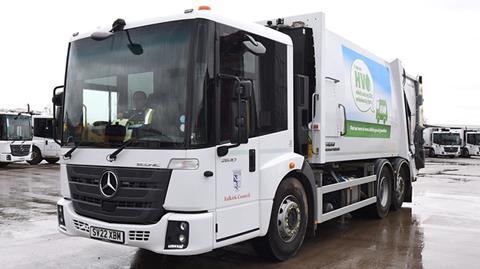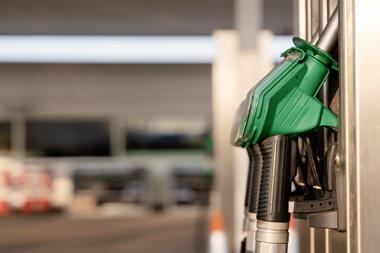
Hydrotreated Vegetable Oil (HVO) has been introduced as a fuel source for all 24 bin lorries owned by Falkirk Council, and it is encouraging local companies with HGVs to follow its lead.
The initiative is part of a £5m plan by the council to create a more sustainable fleet.
The local authority has introduced 43 electric vehicles so far this year, bringing the total number of electric-powered cars and vans it operates to 129, and its operates 102 electric vehicle charging points dedicated for fleet vehicles, which means they can be used across the district without dependence on public charging network.
However, due to the current limited mileage range and high cost of electric-powered heavy goods vehicles such as bin lorries, the council decided HVO – a diesel alternative that reduces net carbon emissions by up to 90% – was a positive step towards reducing carbon emissions while awaiting advancements in technology.
Moving to HVO required limited investment due to the transition being a simple fuel swap, which meant no vehicle modifications were needed as the fleet could immediately run off the high-grade alternative fuel derived from waste plant matter.
Crews and drivers have report there has been no impact on the driving experience and there have been no reported breakdowns or mechanical issues associated with HVO.
The Council now plans to expand the use of the biofuel to other diesel vehicles in its fleet, with the aim of achieving a total carbon emissions reduction through the adoption of HVO of 2,000 tonnes over the next 12 months.
It is also actively promoting the use of HVO and its green fleet, raising awareness through decals on its vehicles to demonstrate its commitment to sustainability and encourage other companies to follow suit.
Cllr Bryan Deakin, spokesperson for Climate Change, said: “We were among the first Scottish councils to trial HVO, transitioning a number of our refuse and roads vehicles to HVO biofuel. The success of that pilot confirmed HVO as an affordable and effective alternative to diesel, capable of potentially cutting up to 90% of carbon emissions from vehicles over 3.5 tonnes. By transitioning our large vehicles to HVO, we reinforce our commitment to supporting a thriving economy and green transition by reducing emissions and improving air quality. The move also positions us as a leader in eco-friendly practices, which we hope will inspire others to follow suit.”
































